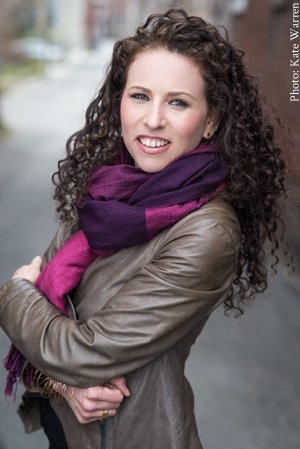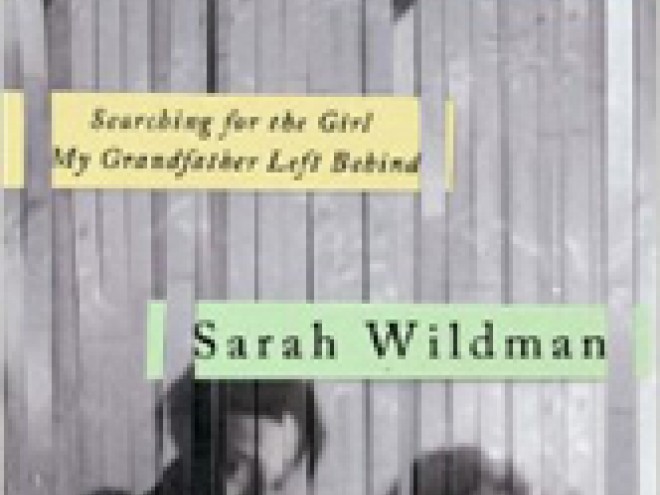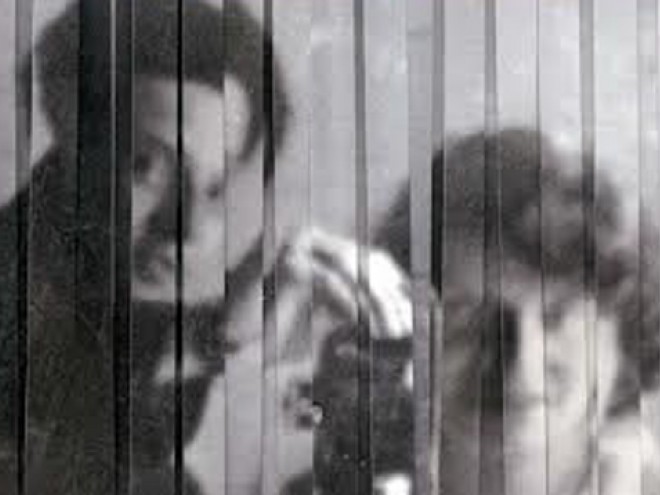Earlier this week, Sarah Wildman shared an interesting letter that didn’t make it into her book, Paper Love: Searching for the Girl My Grandfather Left Behind. She has been blogging here all week for Jewish Book Council’s Visiting Scribe series.
 When I set out to research the life of the woman, Valy, who wrote to my grandfather for years after he fled Vienna in the fall of 1938, I began one leg of my search by looking for other Jewish letter writers trapped in the Reich during the same time period. Two such writers – both with a tremendous body of work, mostly letters written to children – have had books published of their letters and these lingered with me long after I put them down. Both were women, and both were married to, and then divorced from, Aryan men – this meant their children had a privileged status, and also stayed in touch with them far longer than Valy was able to stay in touch with my grandfather. Their words give depth and texture to the incremental horror, a day-by-day account of what Jews were experiencing as the Nazi vise closed tighter and tighter around the community. And their voices give a crucial, and clear, eye-witness account of life in Germany during the heart of terror. At first I thought I would write more on these letters in my book; in the end, Valy’s words were so prolific, and so powerful, these books became contextual for me, rather than central.
When I set out to research the life of the woman, Valy, who wrote to my grandfather for years after he fled Vienna in the fall of 1938, I began one leg of my search by looking for other Jewish letter writers trapped in the Reich during the same time period. Two such writers – both with a tremendous body of work, mostly letters written to children – have had books published of their letters and these lingered with me long after I put them down. Both were women, and both were married to, and then divorced from, Aryan men – this meant their children had a privileged status, and also stayed in touch with them far longer than Valy was able to stay in touch with my grandfather. Their words give depth and texture to the incremental horror, a day-by-day account of what Jews were experiencing as the Nazi vise closed tighter and tighter around the community. And their voices give a crucial, and clear, eye-witness account of life in Germany during the heart of terror. At first I thought I would write more on these letters in my book; in the end, Valy’s words were so prolific, and so powerful, these books became contextual for me, rather than central.
The first is called Before Deportation: Letters from a Mother to her Daughters January 1939-December 1942. These are the collected letters of Hertha Feiner, a Berlin based schoolteacher whose two girls were spirited out of Germany to Switzerland by their non-Jewish father. Feiner’s ex-husband marries a Nazi, and though their divorce had been amicable (and not due, for example, to the pressure many mixed marriages faced to dissolve in the face of racial laws) eventually that relationship sours. Feiner’s letters to her daughters, like those of Valy, are increasingly desperate until she grasps at the one thing she believes will save her: the presence of her Aryan children. She wants them to come back to Berlin for her. It sounds insane, doesn’t it? But for a time their very existence had helped her – it gave her, as she writes them, a “special status.” They don’t return to their mother – in part because their father forbids it; in part because their school does; in part because it is unclear it would have helped. But their mother’s last letter just destroys me every time I read it. It was penned in December of 1942. “Christmas is coming, the celebration of love. Let’s hope that peace will come and all people who love one another will be reunited. … Please be very kind to each other, and think now and then of me.”
Feiner was – like Valy and her mother – employed by the Jewish community. She was tasked with the terrible task of preparing deportation lists. She writes to her girls of the fate facing those in the Jewish community that they know, and what they are going through, their factory work, their impoverishment. Feiner was deported on March 12, 1943 to Auschwitz, but as she had been made privy to the deprivations, or worse, awaiting her, she committed suicide en route.
The second book is the one I recommend most often — My Wounded Heart: The Life of Lilli Jahn, 1900 – 1944. This book, fuller than the first, and the story is all the more devastating as Lilli’s husband divorced her during the teeth of the Nazi era, at a time when he surely knew that so-doing would be a potential death sentence for his wife. Like Valy, Lilli Jahn was a physician – as was her husband. He has an affair with another doctor, a Nazi, who convinces him to leave his wife, though Lilli and her husband had five children together.
My Wounded Heart is built around both the story of Lilli’s life and the letters she writes to her children when she is eventually incarcerated in the Bretenau labor camp at the outskirts of Kassel. (Her “crime” – beyond her Jewishness – was that she had failed to post the name “Sarah” after her own, on a shingle she hung outside her office door, advertising her medical services.) What is remarkable here is that the children’s letters themselves have also – almost in their entirety – been preserved as well, as their mother smuggled them out of the camp in 1944, before she herself was sent to Auschwitz. Before that terrible day, Lilli begs her children to implore their father to intercede on her behalf. His silence, his inaction, his cowardice is as brutal as Lilli’s fate.
This book is more than a collection of letters, it is a story of entire family, a micro story within the macro, with commentary and material built in around each letter, a means of winnowing into the tragedy of a single family.
Sarah Wildman has reported across Europe and the Middle East for The New York Times, Slate, and The New Yorker, among other publications, and is a former New Republic staffer. She is the recipient of the Peter R. Weitz Prize from the German Marshall Fund of the United States, “for excellence and originality in reporting on Europe and the transatlantic relationship,” for the series in Slate where here book Paper Love: Searching for the Girl My Grandfather Left Behind originated. Wildman lives in Washington, D.C.
Related Content:
- Reading List: Holocaust Fiction and Nonfiction
- Children of the Holocaust by Stephanie Fitzgerald
- Letters from the Lost: A Memoir of Discovery by Helen Waldstein Wilkes
Sarah Wildman has reported across Europe and the Middle East for The New York Times, Slate, and The New Yorker, among other places; she is a former New Republic staffer. She is the recipient of the Peter R. Weitz Prize from the German Marshall Fund “for excellence and originality in reporting on Europe and the transatlantic relationship” for the series in Slate where Paper Love originated. She lives in Washington, DC.


